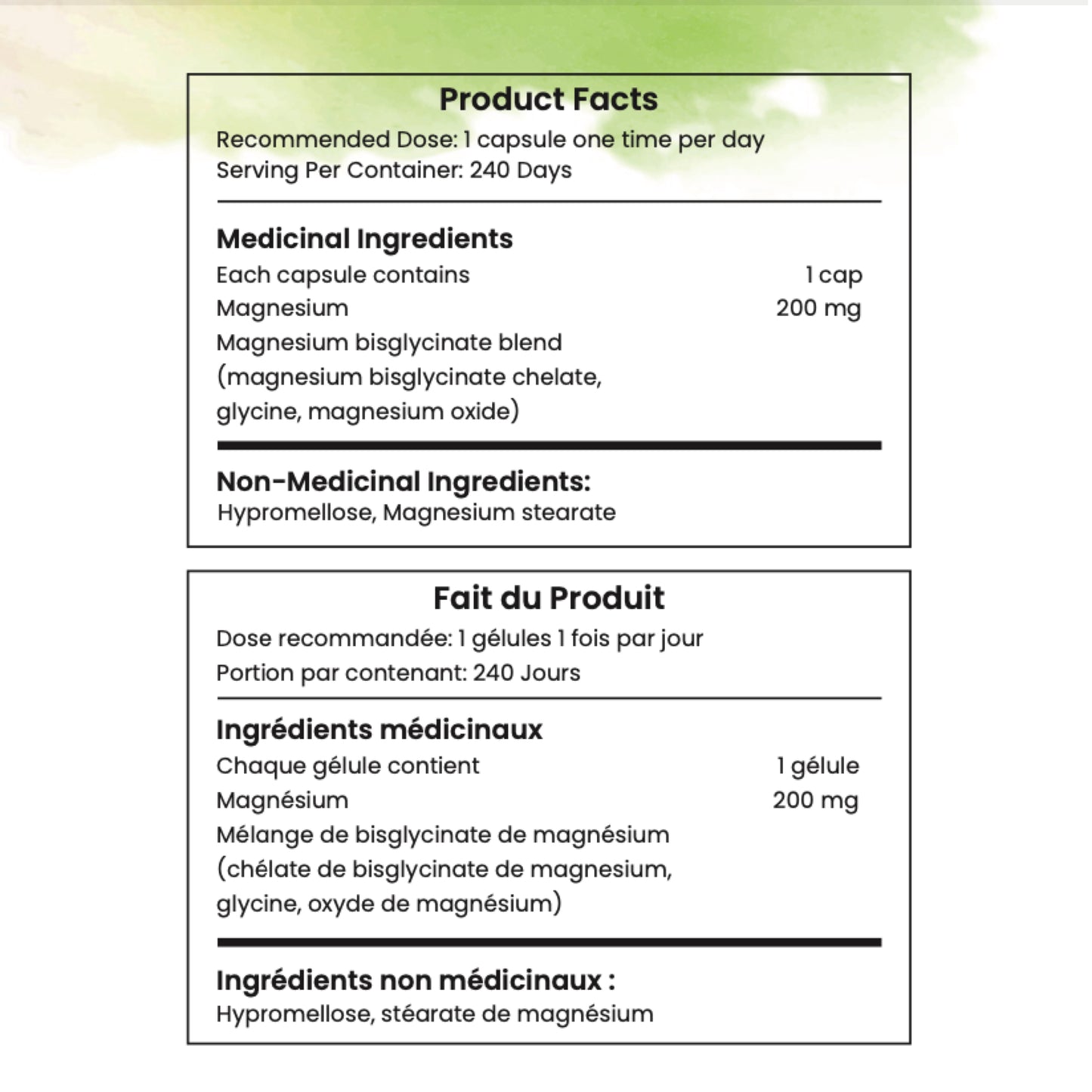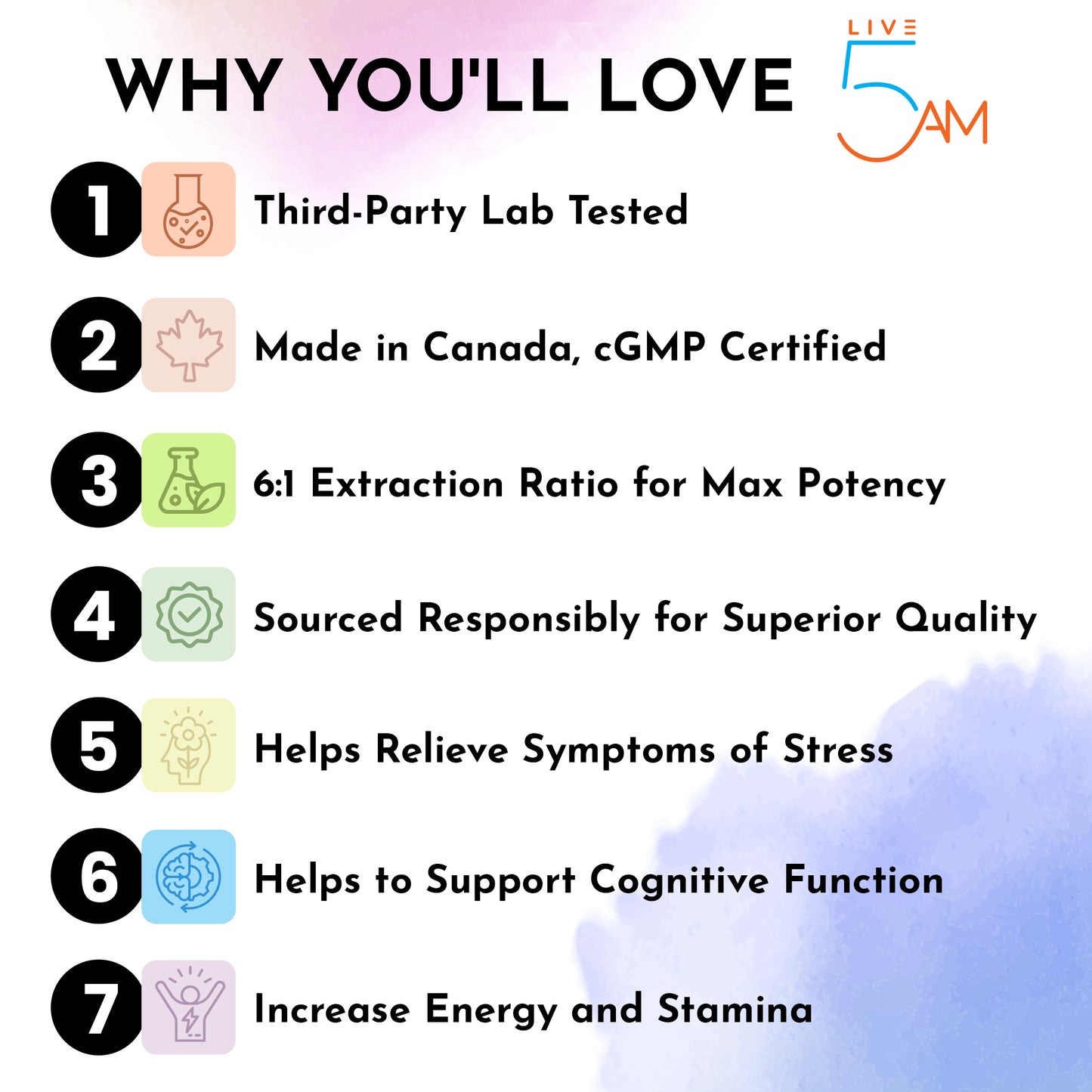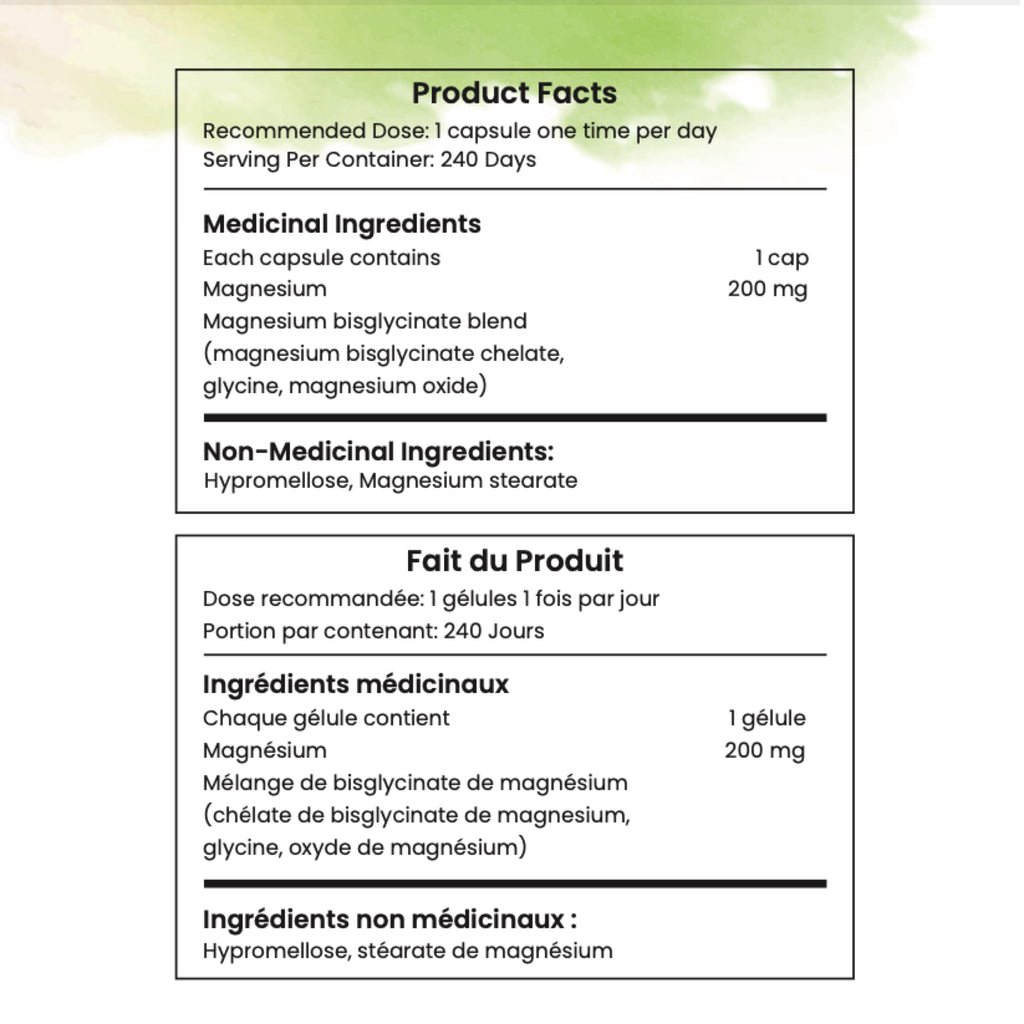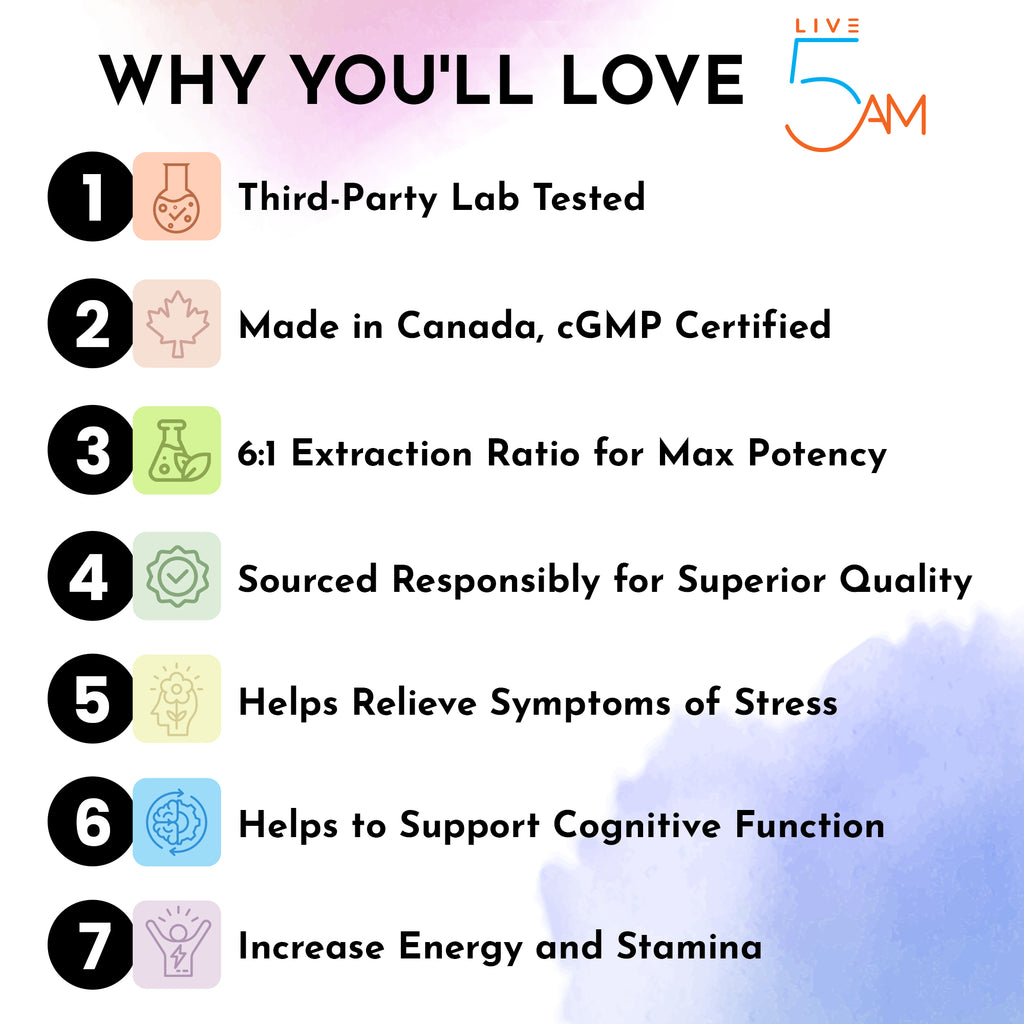Magnesium Bisglycinate 200mg
Supports calm, focus, and restful sleep—helping you relax, recharge, and feel your best.
Couldn't load pickup availability
• Helps in energy metabolism and in tissue formation.
• Helps in the development and maintenance of bones and teeth.
• Helps to maintain proper muscle function, including the heart muscle.
• Helps to maintain normal electrolyte balance.
• Source of electrolyte for the maintenance of good health.
• Take 1 capsules 1 time a day
• Medicinal Ingredients: Magnesium bisglycinate blend
(magnesium bisglycinate chelate,
glycine, magnesium oxide)
• Non-medicinal Ingredients: Hypromellose, Magnesium sSearate












Made in Canada
GMP Certified Facility
Money Saving Subscriptions
Third Party Lab Tested



I was using another one that I was not able to get this one has been great no side effects:) really good I take it to help me sleep.
Came as advertised ,and in my opinion this is the best Magnesium on the market.
Great
It might be a common knowledge, but definitely was a surprise for me. This is the only product that actually works for menopause. Since starting taking it 6 months ago, one pill a day, my hot flashes are completely gone. Highly recommend.
For those looking to enhance their dietary supplement regimen, there is a remarkable magnesium supplement available, made in Canada, that stands out for its high absorption rate. This product provides 200mg of elemental magnesium in the form of Magnesium Bisglycinate, known for its superior absorption and gentleness on the stomach. It comes in a convenient package of 240 vegetable capsules, ensuring a sufficient supply that supports bone health, muscle function, and relaxation.☑️ Made in Canada, ensuring high-quality manufacturing standards.☑️ Contains Magnesium Bisglycinate (Glycinate) for optimal absorption and minimal stomach upset.☑️ Each serving provides 200mg of elemental magnesium, ideal for daily supplementation.☑️ Supports bone health, muscle function, and provides a calming effect for relaxation.☑️ Comes in a large pack of 240 vegetable capsules, offering great value for a long-lasting supply.⭐⭐⭐⭐⭐Finding the right magnesium supplement that is both effective and gentle on the stomach can be a challenge, but this high absorption Magnesium Glycinate supplement meets those needs perfectly. It's reassuring to know that it's made in Canada, adhering to the highest standards. The benefits I've experienced, such as improved relaxation, better muscle function, and support for my bones, make this product a staple in my daily health regimen. The large bottle size is an added bonus, providing great value. This magnesium supplement is a game-changer for anyone looking to improve their wellness routine with a trusted, high-quality product.
A healthy start
to every day!
Follow us on Instagram and Facebook @Live5AM and unlock the opportunity to showcase your wellness journey! 📸✨ Tag us in your share your life-changing stories, and become a part of our community.























